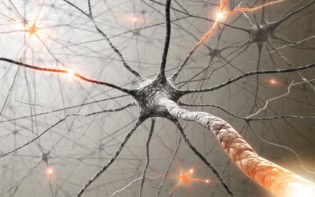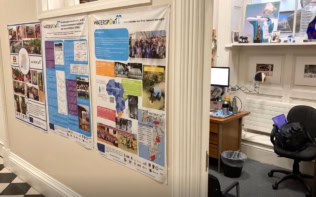Giampaolo Pitruzzello is a postdoctoral research assistant in biophotonics at the University of York, UK.
This post is part of a series on how the COVID-19 pandemic is affecting the personal and professional lives of physicists around the world. If you’d like to share your own perspective, please contact us at pwld@ioppublishing.org.

The moment has arrived: the UK is officially in lock-down to curb the spread of COVID-19. I have been waiting impatiently for this to come. Being Italian, I have many loved ones back home who have been staying home for weeks now. I have been split between the harrowing images coming from Italian hospitals and the almost surreal hesitation and dithering I perceived here in the UK in the past few weeks.
Luckily, things evolved quickly in the last few days. Last Tuesday, I was in the lab running what I knew was going to be my last experiment for an unknown period of time. It was with a veil of sadness and uncertainty that I tidied up the lab bench at the end of the day and went home. At that time, we were already applying social distancing measures by limiting the number of people in the lab at same time.
The day after, we were strongly advised to work from home, which for an experimental research group, basically implies lab shutdown. Indeed, rumours had already started to circulate that all research facilities would have been closed by the end of the week. And so it was. We were told to shut everything down by the end of last Friday.
My research is strongly experimental and requires the use of specialized equipment: a cleanroom, an optical lab, incubators and microscopes. Now my work is restricted to the use of a 13” laptop and maybe an external screen to make it easier. At first, I felt lost, frustrated and doubtful. I certainly cannot culture bacteria and build a microscope to do experiments in my living room.
However, being a chronic optimist, I tried to look at the bright side. Over the last few days I have realised that there is still a lot I can do from home and I will take the occasion to try answer some very important questions.
Is there anything I can improve in my experiments? Am I interpreting my data correctly? Is there anything else I can learn from the existing literature? What are my next experiments going to be? These are questions that I normally ask myself. However, I feel that I am always too busy supervising new students, attending meetings and jumping between different labs to properly dive into such questions. When was the last time I sat down and seriously brainstormed about my work? I am not sure I can remember.

Physics in the pandemic: ‘I am in a very privileged situation’
Staying at home will inevitably “force” me to really concentrate on these points. In practice, I am aiming to concretise this by working on at least one review paper, by reading the great number of papers that have been piling up and that I kept procrastinating and just by sitting at my desk and thinking. Experiments might have stopped but thinking won’t.
As a group, we have moved our daily 11 am coffee break to Google Hangouts to keep our spirits up and feel connected like in our common room on campus. We have changed our bi-weekly group meetings to online weekly group updates, where everyone is expected to update the group about their ways of coping with the different way of working.
I am hopeful that the situation will come back to almost normal in a few months. I am convinced that by then I will have learned a lot more about my research. Maybe I will even impose myself one day a week of quarantine-style work. Labs will be busy and thriving again, full of people eager to try out the ideas they mulled over during these months. And some of those ideas will be winning ones that will make this lock-down worth it.



